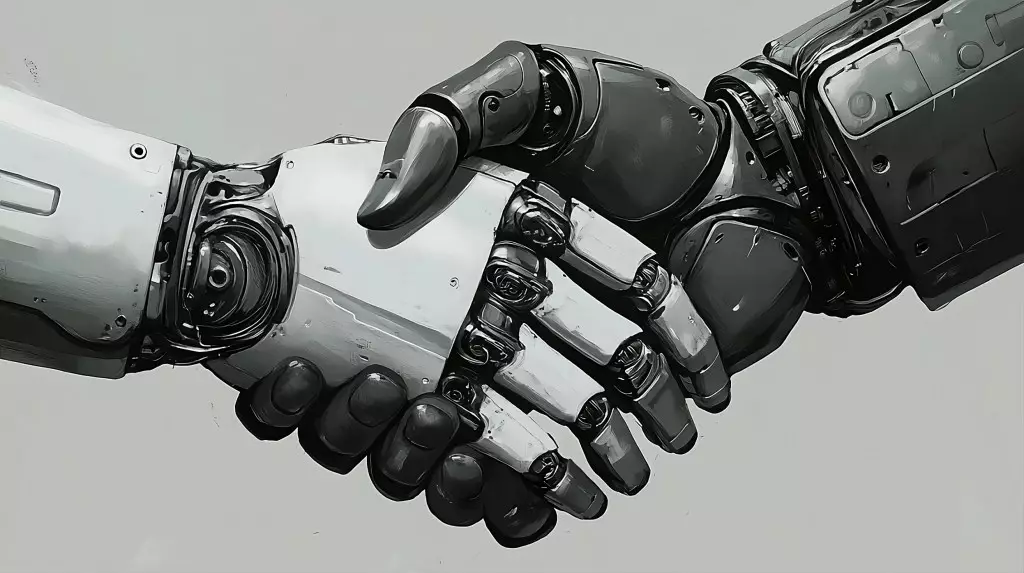The business landscape is on the brink of a seismic shift, one that integrates artificial intelligence (AI) agents to augment human decision-making processes. The concept of these agents as the “next frontier of generative AI” suggests that they are more than just tools; they symbolize an evolution in how businesses operate and innovate. Recent findings from the BCG AI Radar global survey underline this assertion, revealing that about two-thirds of organizations are venturing into the realm of AI agents. This development signifies a future where AI systems will not only process natural-language commands but also autonomously make judicious decisions akin to a human employee’s reasoning.
Critically, the potential applications for these AI agents are vast, spanning across multiple sectors in ways that can alleviate labor-intensive tasks and perform intricate qualitative and quantitative analyses. The narrative should not veer towards dystopian scenarios, as there lies an opportunity for humans and machines to forge a collaborative relationship that enhances productivity while preserving ethical standards and oversight.
The Role of Human Custodianship
Despite their growing capabilities, AI agents are not self-sustaining; they require a structured onboarding process similar to that of new recruits. This necessity for extensive training is pivotal to ensure they operate effectively within defined parameters. The human role transitions into that of a custodian, emphasizing supervisory oversight to guarantee adherence to governance frameworks, ethical standards, and security protocols.
A compelling argument emerges for the “human-in-the-loop” control mechanisms to enable organizations to strike a balance between the autonomy of AI agents and the mitigative measures against potential errors and misapplications. It’s crucial to recognize the necessity of human oversight, which adds a layer of accountability that AI systems naturally lack.
Furthermore, businesses must cultivate an organizational culture that promotes collaboration among teams to mitigate risks effectively and align AI decisions with overarching strategic goals. The successful integration of AI agents hinges on understanding how these technologies can be harnessed for the organization’s benefit.
Prioritizing AI Upskilling for Future Readiness
One of the significant gaps in the current landscape is the evident under-prioritization of AI upskilling within organizations. Alarmingly, less than one-third of companies have adequately trained even a quarter of their workforce in using AI technologies. This oversight raises an essential question: How can leaders expect employees to feel competent and empowered in utilizing AI if educational opportunities are not prioritized?
Creating a workforce that is nimble and informed about the technological revolution is invaluable. Organizations should consider implementing regular training sessions focused on agentic AI, drawing attention to both its strengths and weaknesses. This knowledge-sharing can facilitate greater comprehension among employees about successful human-AI collaborations, thereby fostering a sense of ownership and appreciation for evolving technologies.
Moreover, executive leaders must establish feedback mechanisms to refine the collaborative dynamics between humans and AI. When employees actively participate in identifying and correcting errors, they foster a culture oriented toward continuous improvement—a necessity in today’s fast-paced technological environment.
Strategically Redesigning Workflows for Optimized Integration
According to a recent McKinsey survey, organizations that effectively redesign their workflows when implementing generative AI see a pronounced increase in profitability. The underlying message is clear: the true value of AI manifests when companies rethink their operational models rather than merely tacking AI onto existing processes. Executives need to concentrate their resources on a limited number of key initiatives, allowing teams to devote time and effort towards diligent upskilling and comprehensive reevaluations of fundamental business processes.
While constant human-AI collaboration may not always be the ideal solution, studies from MIT suggest that clear delineation of tasks often yields the best results. Humans excel in contexts requiring emotional intelligence and nuanced understanding, while AI functions optimally in repetitive, high-volume, and data-centric tasks. Hence, the strategic integration of AI necessitates thorough evaluation of task allocation and a reconsideration of traditional labor divisions.
The Future Workforce: Evolving Roles and Responsibilities
The realization that generative AI will not dramatically alter workforce sizes in the short term is a relief for many. However, executives must embrace the evolution of title roles and responsibilities within their organizations, as demands for expertise in AI ethics, model validation, and integrated service operations will emerge. For this transition to succeed, executive-level commitment is indispensable.
Business leaders must craft a robust organization-wide strategy that not only endorses AI adoption but also appoints teams dedicated to steering this initiative effectively. Merely transferring this responsibility to IT departments risks overlooking essential business contexts. Senior management must actively participate, potentially overseeing ethical governance to ensure that AI aligns with strategic goals.
As the landscape evolves, recruiting individuals with proven abilities in model bias testing and interdepartmental collaboration will be crucial to crafting AI solutions that address diverse team needs. Additionally, organizations seeking quality talent should consider partnerships that facilitate the development of top-tier, AI-enhanced technology products.
In the coming years, success will be defined by an organization’s ability to cultivate a collaborative environment where humans and AI work hand-in-hand, co-creating value and innovation.


Leave a Reply